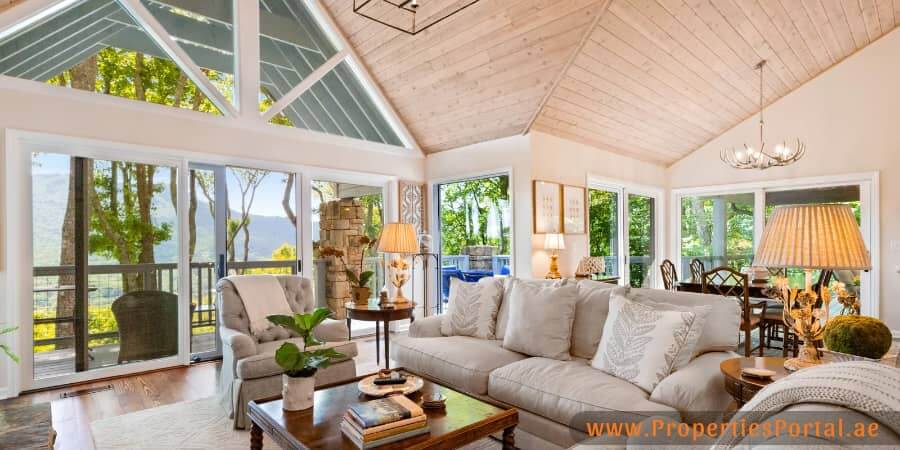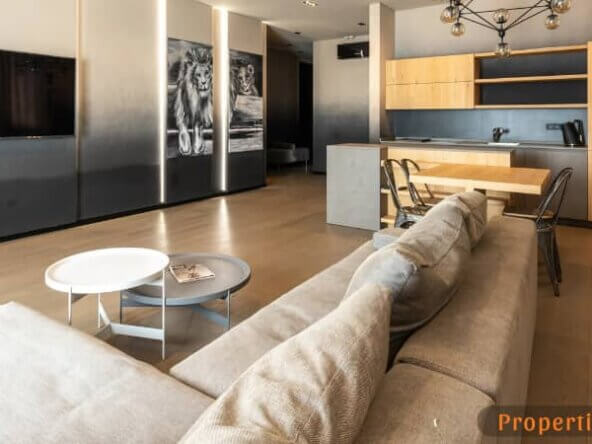Dubai is one of the world’s top destinations, attracting people from all over the globe for work and tourism. With the increasing number of expatriates, shared housing in Dubai has become a popular option, providing residents with a satisfactory living experience.
- In this article, we will delve into the world of shared housing in Dubai, explore the regulations governing it, its advantages and disadvantages, and offer valuable tips to ensure a comfortable and productive living experience.
Is Shared Housing Allowed in Dubai?
Before deciding on shared housing, it is essential to understand the related laws and regulations. Dubai permits shared housing, but it is subject to specific terms and laws. According to Dubai’s housing law, families and individuals can live in shared housing provided they adhere to the permitted number of occupants per housing unit and have a valid rental contract. Tenants must also register themselves with the relevant authorities to ensure full compliance with local laws.
What is the Shared Housing Law in Dubai?
The shared housing law in Dubai aims to create a comfortable and safe living environment for everyone by regulating the sharing process and ensuring the respect of residents’ rights and needs. Below are the main regulations of this law:
- Registration and Reporting: The law requires landlords and tenants to register all residents and report any changes.
- Occupancy Limits: To avoid overcrowding and maintain comfort, the law sets a maximum number of occupants allowed in each housing unit, based on its size and classification.
- Contract Terms: Rental contracts must be clear and written, including all terms and conditions to ensure transparency between landlords and tenants.
- Use of Housing Units: Housing units can only be used for residential purposes and cannot be converted into offices or commercial spaces without special permits, preserving the residential nature of communities.
- Shared Facilities: The law ensures respect for shared facilities like pools and gyms, making them accessible to everyone without disturbance.
- Maintenance and Cleanliness: Cooperation between landlords and tenants to maintain the property’s cleanliness and upkeep is essential for happy shared living. Adhering to cleanliness rules enhances the place’s beauty and charm.
- Safety and Security: The law requires everyone to follow the safety and security procedures in the complexes, providing a safe and protected environment for residents.
Advantages and Disadvantages of Shared Housing in Dubai

Advantages of Shared Housing:
- Cost Reduction: Shared housing is an economical option, allowing residents to share rent and utility costs.
- Flexibility: Shared housing offers greater flexibility for moving and short-term stays, making it suitable for newcomers and students.
- Building Relationships: Shared housing provides an opportunity to make new friends and learn about different cultures.
Disadvantages of Shared Housing:
- Lack of Privacy: The lack of privacy is one of the main challenges in shared housing, as common spaces must be shared with others.
- Limited Space: Sometimes, common spaces may not be sufficient to meet everyone’s needs.
Tips and Considerations for Shared Housing in Dubai
When considering shared housing, several tips should be taken into account to ensure a comfortable living experience:
- Choose Suitable Partners: It’s crucial to ensure personal and practical compatibility with housing partners to avoid future problems.
- Set Common Rules: Establish clear rules from the beginning regarding cleanliness, use of common spaces, and scheduling daily activities.
- Open Communication: Maintain continuous and effective communication with housing partners to resolve any issues as they arise.
- Ensure Legal Terms: Ensure the rental contract includes all residents and is legally registered.
- Visit the Property Before Renting: Visit and inspect the housing unit thoroughly to ensure it meets all required facilities and quality standards.
How to Find Shared Housing in Dubai?
Shared housing in Dubai can be found through various means:
- Specialized Websites: Several websites allow you to search for shared housing, such as Property Finder.
- Social Media: Facebook groups and local forums are good sources for finding shared housing.
- Real Estate Agencies: You can use real estate agencies to get special offers that match your needs.
Cheapest Shared Housing in Dubai for Monthly Rent
For those looking for affordable shared housing, there are multiple options in areas like Al Nahda, Deira, Al Qusais, and Al Barsha. Prices range from 600 to 2000 AED per month, depending on location and services provided.
- Prepare for a good living experience in the cheapest shared housing in Dubai’s Al Nahda 2 area, which is close to all facilities and offers all essential services.
Conclusion
Shared housing in Dubai represents a golden opportunity for many individuals looking to reduce costs and enjoy flexible living. By following the tips and guidance provided, you can ensure a comfortable and safe living experience that adds a unique touch to your daily life. Seize this unique opportunity and enjoy living in one of the most exciting, vibrant, and diverse cities in the world. Let Dubai be your gateway to discovering new horizons and living unforgettable experiences.
Show More:
Studio Apartments for Rent in Dubai | Comfort and Elegance in One Place
Explore the best rental apartments in Dubai




